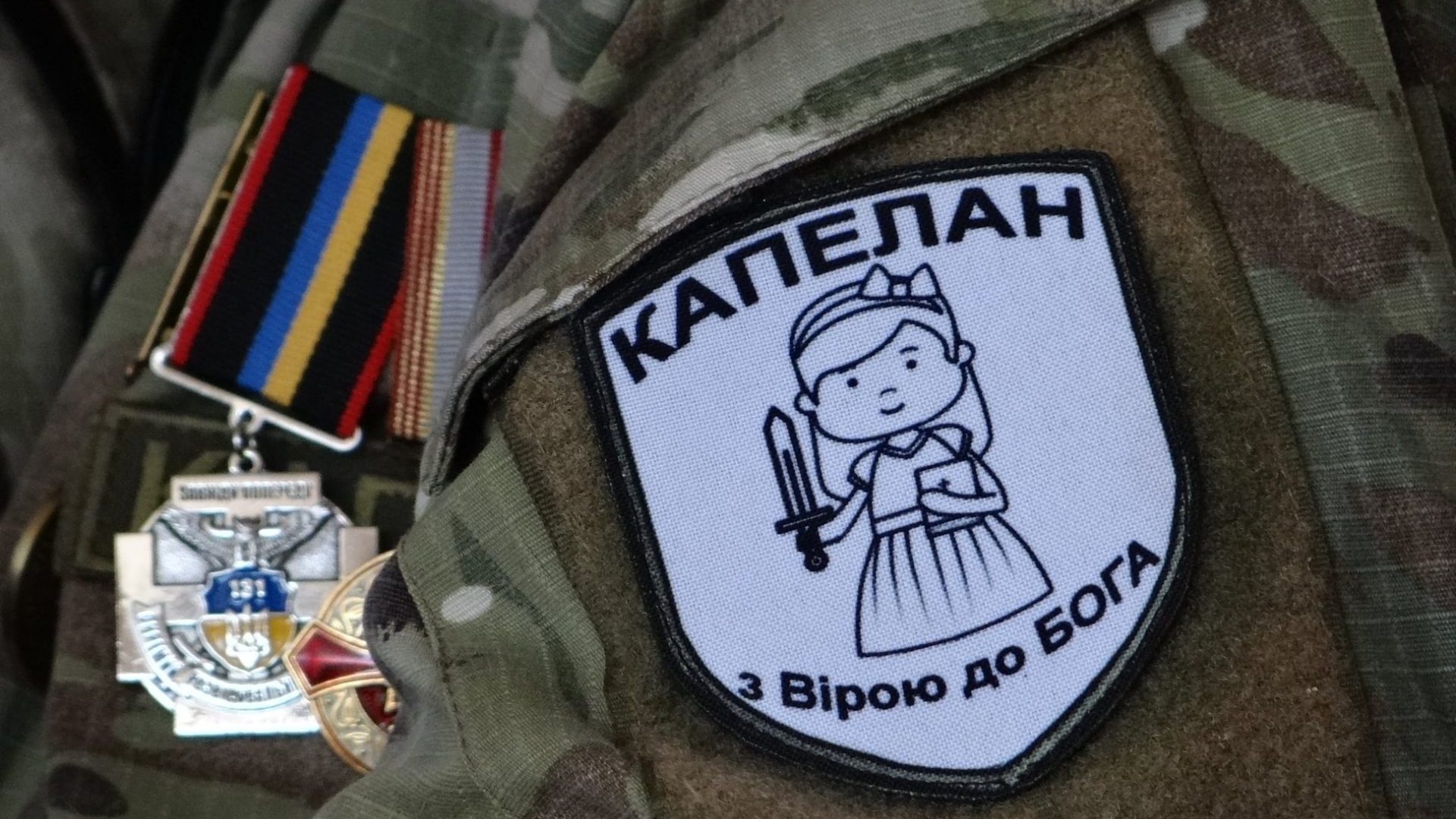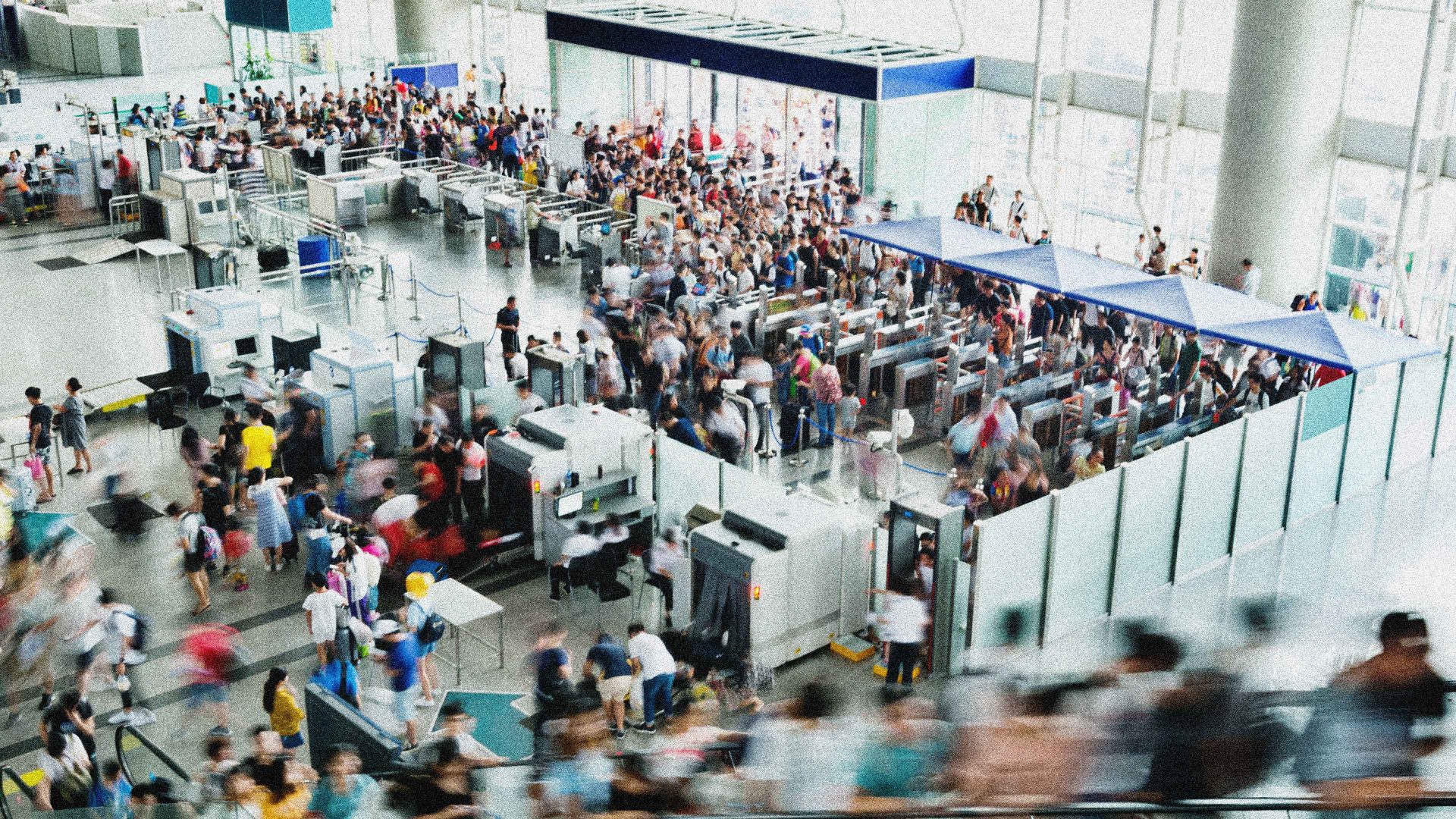As war with Russia approaches its fourth winter, Ukrainian troops are grappling with manpower and firepower shortages all along the 600-mile front. Soldiers are stuck in first world war-style trenches with 21st-century drones buzzing overhead, knowing that death can come at any second.Their suffering is compounded by wavering support from American and European allies.
When morale crumbles and fear creeps in, Ukraine’s military chaplains must rally the men and women on the battlefield. It is not an easy job.
For the past few months, I have been talking to Father Dmytro Danylenko on messaging apps. Ordained as an Orthodox priest in 2017, he became a chaplain in December 2023, attached to the Ukrainian army’s 77th Airmobile Brigade which has seen some of the heaviest fighting.
In the first video he sent me, he is panting heavily and wearing running gear rather than a cassock. “We chaplains have to keep fit”, he tells me as he jogs along a path in eastern Ukraine next to a forest. “You need to be in good shape to cope with all the stress.”
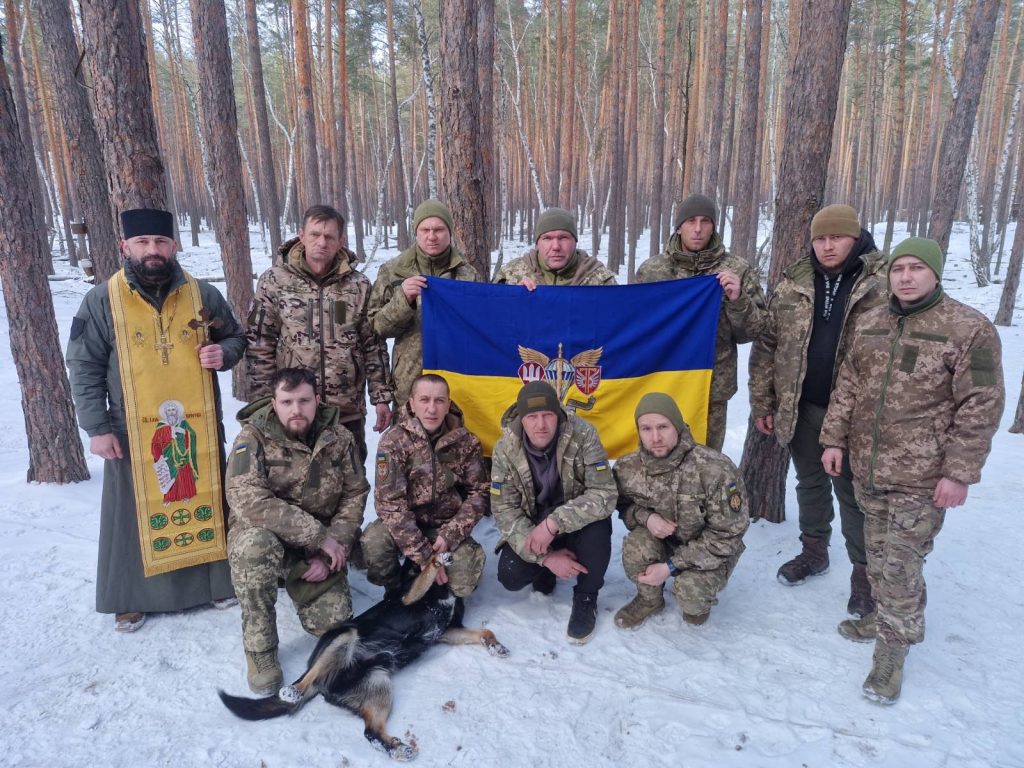
Though he must remain vigilant—constantly watching for threats from above and landmines hidden among the trees – he seems energised by the landscape around him. “Even in war, you can always find something beautiful,” he tells me and quotes a Ukrainian proverb: “A fly will sit on filth, but a bee will sit on a flower.”
In other words, some people will settle for anything while others strive for something better.
But as Moscow’s war machine grinds on, encircling villages and towns, leaving
devastation in its wake, optimism is in short supply. Fr Dmytro’s unit is constantly being replenished because of deaths and injuries.
Four months after the full-scale invasion, the chaplain himself came under fire. A medical officer right next to him had his legs torn off and died minutes later. In the same attack, the unit’s commander was ambushed by the Russians and taken prisoner.
Father Dmytro has experienced many losses – he keeps a tally of them on social media and shows me the fading colour photos of fallen soldiers pinned to the walls of his makeshift chapel. Some deaths have taken an especially heavy toll.
In January 2023, the chaplain had to take the body of his childhood playmate to his parents’ home. The friend, Sasha Plakhuta, who loved cycling and Ukrainian history, was an engineer in peacetime. He turned machine gunner after the invasion and received the Armed Forces of Ukraine’s “Steel Cross” for the liberation of the Kharkiv region.
Fr. Dmytro also shared a video from a snow-covered cemetery, showing the burial of another close friend—his son’s godfather. Oleksandr Piskunov was killed in the first year of the war, but his body was only found months later, and he was identified by the rosary beads around his wrist.
“I constantly feel guilty that I’m still alive and all my friends are dead”, he tells me, his voice faltering. Then he covers his face with his hands and quietly sobs. “Sorry, sorry”, he says, recovering himself and wiping his eyes.
We talk about his daily routine, the morning jog, how he tries to conduct the Divine Liturgy every day as well as praying for the military, the missing and those in captivity. He has learned to sleep at night in barracks, tents and trenches even through the sound of shelling.
Nobody can live in a constant state of red alert, he says. Yet life has become more unpredictable because drones have completely changed the dynamic of the war.
When I ask if he ever feels like leaving his unit, he shakes his head and rolls up his sleeves. On his left forearm is a huge tattoo of the prophet Elijah, and on his right, Archangel Michael. “At one point, I was completely drained of energy, I was ready to give up”, he says. “Only God’s power kept me going.
“My faith got stronger because I knew the Lord saved me for a reason. I have been given another mission. I have been to hell and back and now have to bear witness to that.”
I ask him what he says to soldiers who admit they are afraid or don’t want to carry a weapon because they think it’s wrong to kill? “I tell them that we are fighting a just war and that it is our duty to defend our country”, he replies. “We did not want this war, the enemy came to us, we had to defend ourselves.”
That same message is echoed by Lieutenant Olesksandra Andriyashnya, the first woman to be made a military chaplain in the Ukrainian army. Born into the Orthodox faith, she was not interested in religion until she was 19 and became a Protestant.
As a teacher and social worker, she supported low-income families and teenagers from the Chernobyl zone, north of Kyiv. But once the Moscow-backed conflict in east Ukraine began in 2014, she left the capital to work as a volunteer Baptist chaplain near the frontline.
When we speak over the internet, some of her words are lost as the wind whips around her. She does not tell me where she is but describes her orange arch-shaped shelter. “We got a bunch of these tents from Turkey, and they are so cosy inside”, she says “I have two tables with icons, Christian booklets, Bibles, little prayer books, and a few benches for people to sit on”.
Suggested Reading
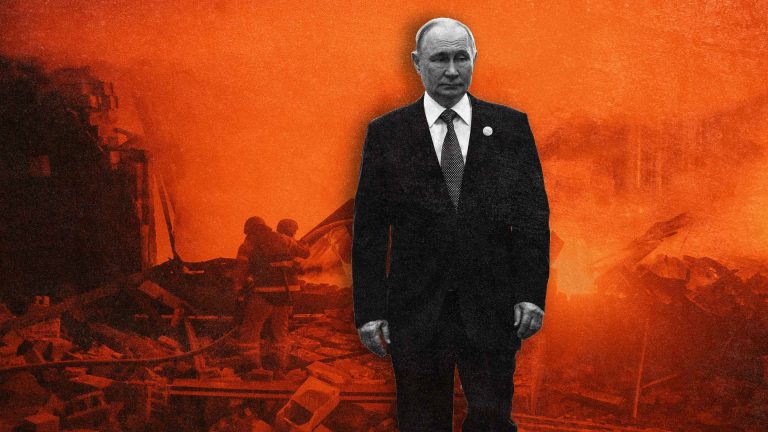
Putin thinks he can’t lose
Half the month she is at battalion headquarters and the other half at the front. She says she spends most of her time drinking tea with soldiers, listening to their problems. “People are so worn down, so frustrated and exhausted, so I do my best to encourage them,” she says.
Sasha, as Lt Andriyashnya prefers to be called, has few illusions. She knows many people lean on superstition, rather than true conviction. “In the heat of the battle, everyone wants to pray, asking God to keep them alive”, she says. “But of course, when everything is normal again and the guys are more or less safe, or they even go back to their families for a short vacation, they kind of forget about God.”
Like Fr. Dmytro, she has lost many friends in this war – 40 so far. She admits that at times it has shaken her faith. “I don’t feel that God is in control”, she says. “But I still believe, I really believe.
“We have all those things we’re fighting for, our nation, our children, our future, our history, our beliefs, our values. We are laying down our lives for that. Through us, God is stopping evil. And we have to stop evil.”
In early August, I visit Kyiv’s main military hospital. At the entrance, I notice a statue of a uniformed soldier in a glass box with a cigarette in his mouth. Fresh flowers have been laid at his feet.
When I asked the press officer accompanying me who he is, he whips out his phone and shows me a video. In the 12-second clip, which went viral two years ago, an unarmed Ukrainian prisoner of war is being filmed and mocked by his Russian captors. The soldier takes a final drag of his cigarette, looks them in the eye, and says, “Glory to Ukraine.” Seconds later, gunfire erupts, and he slumps to the ground, dead.
The soldier was later identified as 42-year-old Oleksandr Matsievskyi, who was seized while defending Bakhmut in November 2023. Today, the town in the Donetsk region may be reduced to rubble and under Russian control, but the smoking Matsievskyi remains a symbol of heroism and defiance.
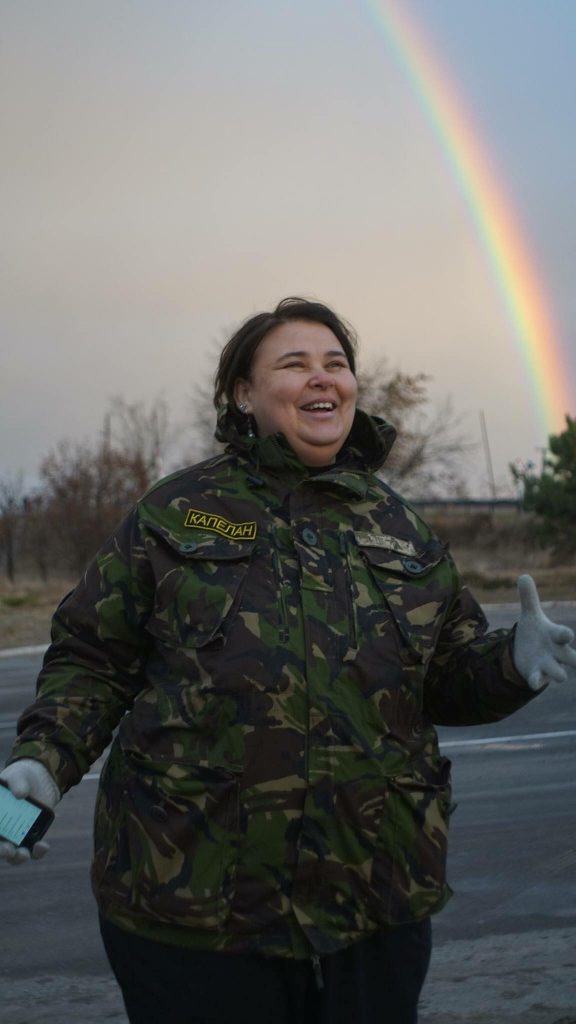
I have been invited to a multi-confessional training session for chaplains inside the hospital’s Church of the Protection of the Theotokos. Built 270 years ago under Empress Anna 1 of Russia, the church with richly decorated walls, is no longer attached to the Moscow Patriarchate – it belongs to the self-governing Orthodox Church of Ukraine. It is also the only church in the country with a lift and automatic doors. In the hospital grounds many veterans are in wheelchairs.
Inside, sitting in rows in the nave, Orthodox, Baptists, Greek Catholic, Messianic Jews and an Imam watch a film and ask questions. Some are army officers in active service who are also training for the chaplaincy at St Michael’s seminary in another part of Kyiv. Some are rural priests encountering other faiths for the first time.
They are told that their mission is not conversion, but ensuring all soldiers, regardless of creed, feel recognised. In a country fighting for its identity, this ecumenical approach is essential for unity, says Father Oleh Sknar, the resident priest leading the session.
He tells the chaplains not to hide behind cassocks and to meet soldiers as men and women first, not as members of a particular religion. Their motto is: Ukraine stays, prays, and fights.
Father Oleh is rather an unlikely priest. An archaeologist by training, he spent years excavating fragments of the Dead Sea Scrolls, discovered in Qumran in southwestern Israel. He was anointed in 1999, but clerical work aside, he also liked jumping out of planes at 4000m.
An accident in September 2021, when his parachute failed to open, shattered his spine in three places. On his phone, he has a series of X-rays which show the metal screws in his back.
“I remember lying on my back after I fell, staring up at the sky”, he says. “I was convinced I would never walk again, and I wondered why God had punished me. But now I realise it was preparation for this war.”
The priest’s remarkable recovery now inspires people learning to live again with prosthetics, paralysis, and trauma. He tells me about one man who was suffering from gangrene but refused an amputation. “He said he would rather die than lose a leg, and when I brought him a prayer book, he flung it across the room,” says Fr Oleh.
But then the soldier’s estranged wife unexpectedly reappeared and rekindled his will to live. He agreed to the procedure. The priest, wearing a surgical gown and mask, went to see him in the operating theatre to offer moral and spiritual support.
“When he heard my voice, he was woozy with the pre anaesthetic”, laughs Father Oleh, “he thought I was the apostle Peter and that he was already dead!”
In this place, where 80% of patients have limb injuries and a quarter are amputees, chaplains must bridge divides and give soldiers reasons to live — whether it’s faith, family, or just the promise of going fishing again. But not all stories can have an uplifting conclusion. Sometimes, says Fr Oleh, the job is “as simple as squeezing a dying man’s hand and whispering the Lord’s Prayer.”
Ukraine’s resilience in the face of aggression has been much celebrated. But it is sorely tested every day of this war. Not for the first time, I wonder just how long it can endure.
Sasha, the Baptist chaplain, tries to put a brave face on it: “I pray and I hope that I live to see our victory. On that day I’ll dye my hair blue and yellow, our national colours to celebrate and I joke with my soldiers that I will get drunk for the first time in my life. I’m ready to die and go to heaven, you know, but I want to live!”
Lucy Ash is a writer and documentary maker. She is the author of The Baton and the Cross: Russia’s Church from Pagans to Putin


